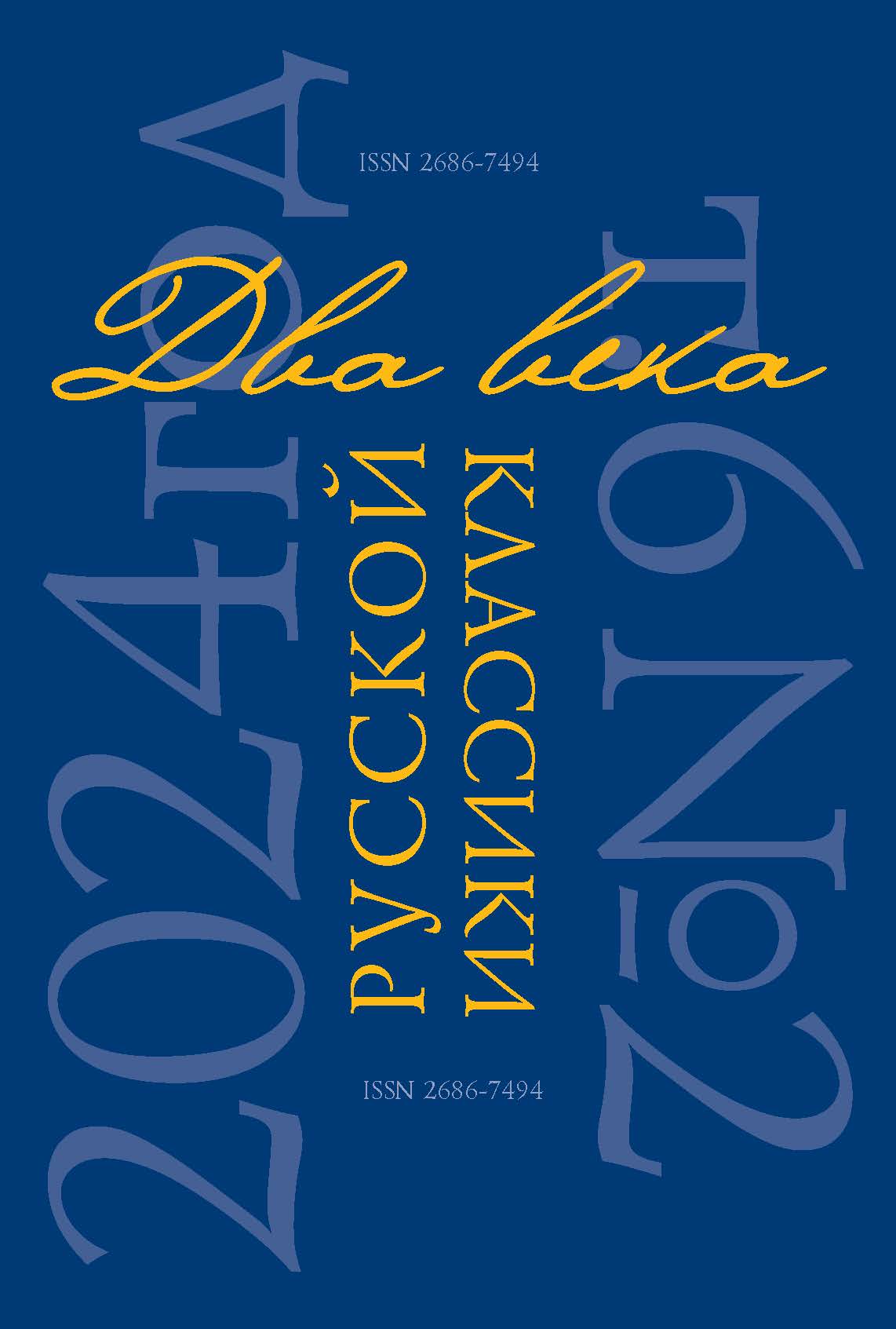Abstract: The article is devoted to Russian poetry of the 1816-1820s, the ways and forms of expressing national identity in the literature of the indicated period. For several years after World War II, russian literature reflected the pathos of the great victory, joyful feelings. Appealing to the poems of Vyazemsky and Zhukovsky, the author of the article considers the best fundamental features of the Russian national character embodied in them - kindness, mercy. The height of morality is recognized by poets is recognized by poets as the first dignity not only in peacetime, but also in any emergency, including time of hostilities. The article notes that the self- consciousness and the mood of Russian society after the victory over Napoleon, with all the diversity of opinions, focused on a sense of national unity. However, the complex inner life of the nation required not only answers at the level of political assessments, but also a spiritual and moral vigil, the movements of thoughts and feelings. The work gives an idea of the Russian path and the interpretation of its mission in the poems of Russian poets, the image of the sovereign, the attitude towards him. The author analyzes the religious motives in the works of a number of Russian poets, including I. A. Krylov, whose morality, which at first glance seems somewhat superficial, in fact, is deeply connected with Orthodox values, confirms them.
References
Avramov Matf<ei>. Glas Evropy pri verolomnom vstuplenii na berega Frantsii vraga vsemirnyia i vtrokratnom pokhishchenii ee prestola kliatvoprestupnoi derzost'iu v 1815 g. [The voice of Europe during the treacherous entry of the enemy of France on the shores of France and the abduction of her throne three times by an oath of insolence in 1815]. Moscow, Universitet. tip. Publ, 1815. 50 p. (In Russ.)
Batiushkov K. N. Moi genii [My genius]. Batiushkov K. N. Opyty v stikhakh i proze [Experience in poetry and prose]. Moscow, Nauka Publ, 1977. 608 p. (In Russ.)
Vigel' F. F. Zapiski; red. i vstupitel'naia st. S. Ia. Shtraikha [Notes; ed. and introductory article S. Ya. Streich]. Moscow, Krug Publ, 1928. 387 p. (In Russ.)
Viazemskii P. A. Ital'iantsu, vozvrashchaiushchemusia iz Rossii // Sobranie obraztsovykh russkikh sochinenii i perevodov v stikhakh, izdannye Obshchestvom liubitelei otechestvennoi slovesnosti. Chast' chetvertaia [The Italian returning from Russia. Collection of exemplary Russian works and translations in verse, published by the Society of lovers of Russian literature. Part four]. St. Petersburg, 1816. (In Russ.)
Glinka F. N. Stikhi na 23 noiabria [Poems for November 23]. Syn Otechestva [Son of the Fatherland]. 1817. № 48. pp. 117–118. (In Russ.)
Dolgorukov I. M. Bytie serdtsa moego, ili Stikhotvoreniia kniazia Ivana Mikhailovicha Dolgorukago: v 4 ch [Genesis of my heart, or Poem by Prince Ivan Mikhailovich Dolgorukago: at 4 part]. Moscow, Universit. tip Publ., 1817–1818. Ch. 1. 241 p. (In Russ.)
Zhukovskii V. A. Sobr. soch.: v 4 t. [Coll. Works in 4 vols.] Moscow, Leningrad, Goslitizdat Publ, 1959–1960. Vol. 1. 480 p. (In Russ.)
Zabelin I. E. Dnevniki. Zapisnye knizhki [Diaries. Notebooks]. Moscow, Izd-vo im. Sabashnikovykh Publ, 2001. 383 p. (In Russ.)
Katenin P. A. Otechestvo nashe stradaet [Our fatherland is suffering]. URL: http://stih.su/otechestvo-nashe-stradaet (access date: 23.07.2019). (In Russ.)
Krylov I. A. Basni: v 9 kn. [Fables in 9 books]. Moscow, Akad. Nauk Pudl, 1956. 635 p. (In Russ.)
Kubenskii A. (Rachinskii A. V.) Imperator Aleksandr I – pobeditel' v pervoi global'noi voine [Emperor Alexander I – winner in the first global war] Shcherbatovo (Mar'ino). Pravoslavnyi istoriko-kraevedcheskii al'manakh [Shcherbatovo (Maryino). Orthodox historical and local history almanac] .Vol. 1(6). Moscow, 2001. pp. 87–98. (In Russ.)
Lobanov M. Elegiia pri grobe kniazia Smolenskogo [Elegy at the tomb of Prince Smolensky]. Syn Otechestva [Son of the Fatherland]. 1816. № 15. pp. 106 (In Russ.)
Pushkin A. S. Polnoe sobranie sochinenii: v 10 t. [Complete Works: in 10 vols.] Vol. 1. Leningrad: Nauka Publ, 1977. 480 p. (In Russ.)
Raevskii V. Proshchanie voina s miloi [Farewell of a warrior with a sweetheart]. Syn Otechestva [Son of the Fatherland]. 1816. Part. 4. P. 89. (In Russ.)
Svin'in P. Pis'mo k bratu iz Khotina [Letter to brother from Khotyn]. Syn Otechestva [Son of the Fatherland]. 1916. № 29. P. 142. (In Russ.)
Sreznevskii I. Blagodarenie Vsevyshnemu, darovavshemu pobedu na vseobshchego vraga [Thanksgiving to the Almighty, who granted victory to the universal enemy]. Ukrainskii vestnik [Ukrainian Herald]. 1816. Ch 2. Aprel'. Khar'kov. P. 74, 75. (In Russ.)
Iachmenikhin K. M. Aleksei Andreevich Arakcheev. Rossiiskie conservatory [Alexey Andreevich Arakcheev. Russian conservatives]. Moscow, 1997. P. 40. (In Russ.)









